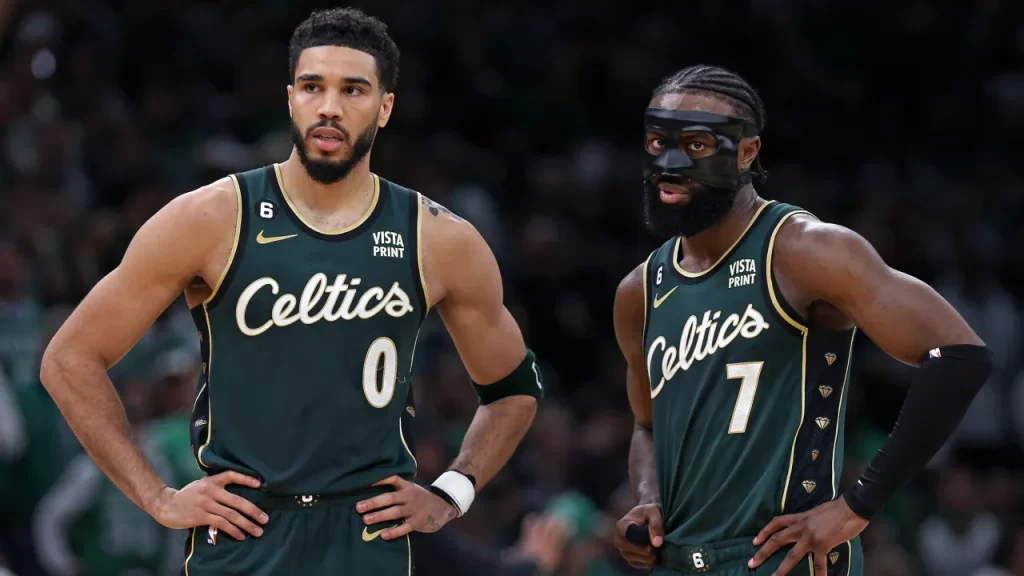The NBA Board of Governors made a groundbreaking decision on Wednesday by approving a fresh “Player Participation Policy” (PPP), aimed at countering the trend of ‘load management’ and ensuring the consistent presence of basketball’s marquee talents on the court throughout the season.
Replacing the 2017-established Player Resting Policy (PRP), these innovative rules are designed with the clear intention of encouraging player involvement in the NBA’s complete 82-game regular season. They are also designed to prevent teams from resting more than one of their key “star” players on any given night, a practice commonly known as load management.
Under the PPP, a star player is defined as an individual who has received All-NBA or All-Star team honors in any of the preceding three seasons. As a result, teams like the Boston Celtics must ensure that at least one of their dynamic duo, comprising players like Jayson Tatum and Jaylen Brown, is available for every game during the regular season, as long as they are free from injury.
The implementation of these new provisions designates a total of forty-nine players as stars, spread across twenty-six different teams. However, the specific impact of this rule will be felt by only the fifteen teams harboring multiple star players.
NBA Commissioner Adam Silver took the opportunity to address these fresh regulations during a press conference held on Wednesday. He underscored that the primary focus of these changes is the fans, emphasizing that the concept of ‘load management’ had been taken to an excessive extreme.
Silver elaborated, stating, “This is an acknowledgment that it has veered off course to some extent. It doesn’t imply a complete reversal, expecting players to endure injuries or forego rest entirely. However, it reflects a fundamental principle in this league: if a player is in good health, they are expected to be on the court.”
Impact on Star Players Across the League
The PPP, while primarily centered on star players, extends further in its scope. It mandates that eligible, injury-free players must be available for nationally televised games and the entirety of the upcoming in-season tournament, commencing in early November.
Furthermore, it seeks to prevent the practice of “shutdowns” for star players towards the conclusion of the season. Historically, some teams have sidelined their top performers during the final stretch of the regular season, leading to accusations of tanking—intentionally underperforming to secure a higher pick in the NBA Draft.
For instance, last season witnessed the Washington Wizards benching Bradley Beal, citing “knee soreness” as the reason, for the last ten games, while the Portland Trail Blazers attributed Damian Lillard’s absence from eleven games to “right calf soreness.” Under the new regulations, both teams would have faced league scrutiny and potential fines for their actions.
